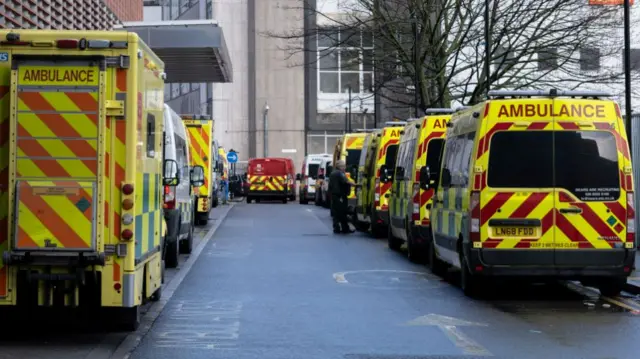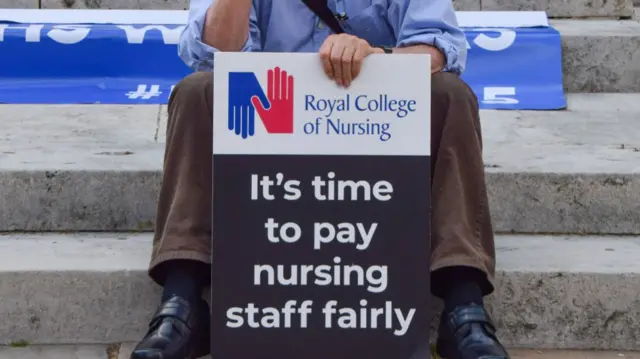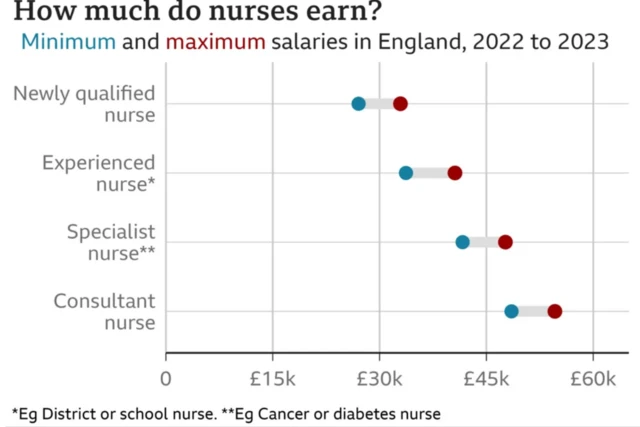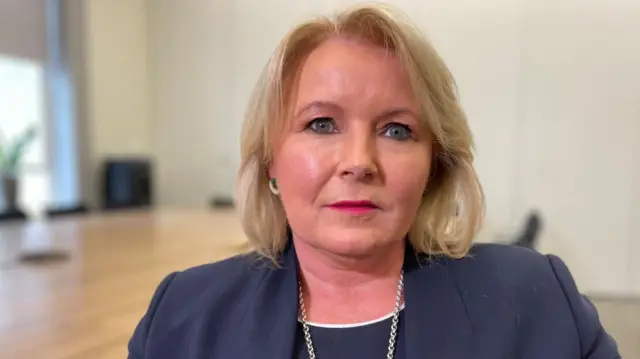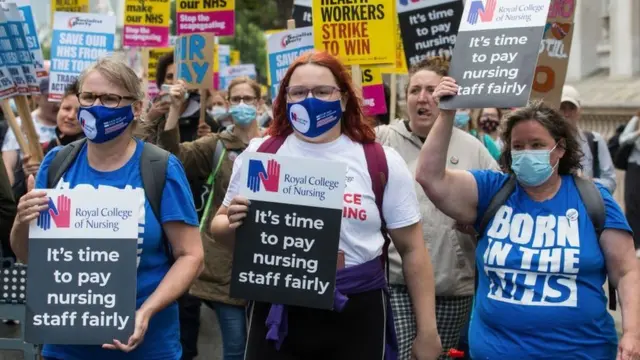'Taking strike action makes me sad'published at 09:36 GMT 25 November 2022
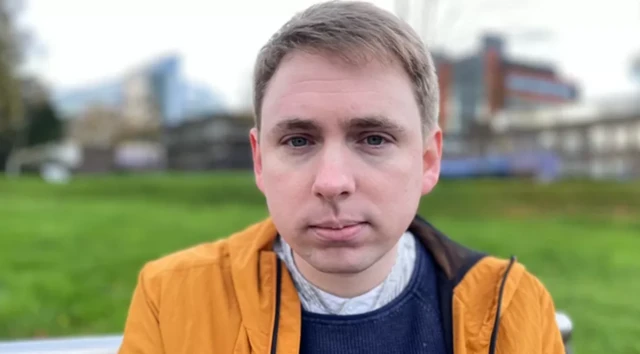
Hospital nurse Shaun Williams only started working as a nurse a year ago.
He says the thought of striking makes him sad, but he is prepared to do it.
"I am sorry we are having to do this.
"But we are doing it for the right reasons, we are doing it for patient safety.
"You are running on reserves most days. We do not have enough staff and because of the lack of nurses, patients are at risk.
"Unless we pay nurses more we are not going to attract people or keep people."
And he says unless the situation changes he may even quit nursing.
